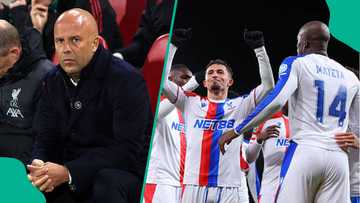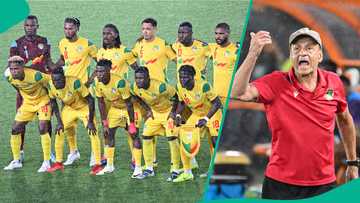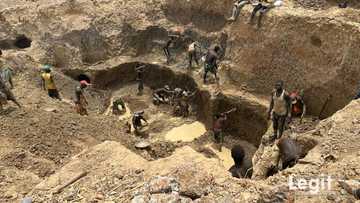Nigeria's Football Hooliganism, a Disease Without a Medicine
- In the aftermath of the violence that engulfed the Sani Abacha Stadium in Kano, the incident has become a major talking point in football circles and beyond
- Given that hooligans among Kano Pillars’ supporters led the way in the violence during the match against 3SC, the home team have borne the brunt of the condemnation
- The threat posed by certain hardline fans at top-flight games across Africa’s most populous nation has heightened the sense of urgency
Legit.ng journalist Ridwan Adeola Yusuf has over nine years of experience covering football and sports in Nigeria and across Africa.
Kano, Kano state - They hunt in packs, driven by rage and a thirst for instant revenge, hooked on violence, and often wielding harmful objects. They whisper and signal to each other to arrange showdowns with imagined adversaries right on the pitch, undeterred by security agents' surveillance. This is the profile of the 21st-century football hooligan in Nigeria, a breed of 'fan' who, though repeatedly tackled, has never truly gone away.
Violent fans, mostly male and between 15 and 30 years old, come from across the social spectrum.
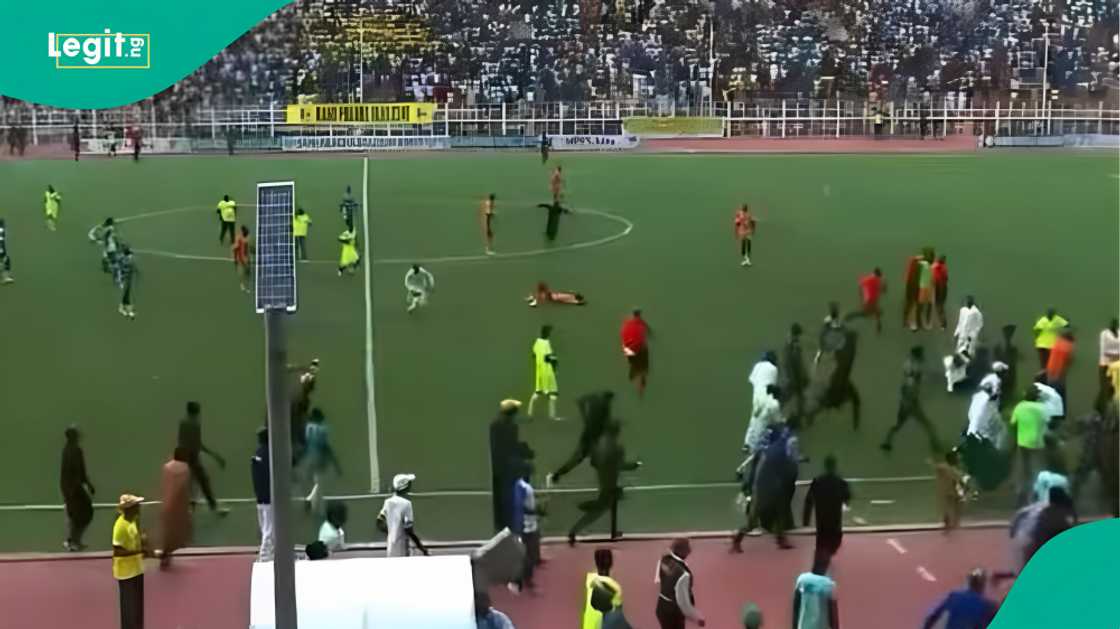
Source: UGC
From Kano to Plateau, Bauchi, and Akure, spontaneous stadium violence keeps on affecting the beautiful game in the football-crazy West African nation.
Several clubs have been forced to play behind closed doors as punishment for fan violence, and the Nigeria Premier Football League (NPFL) continues to impose heavy sanctions on erring clubs. Yet, the violence persists.
Reports in 2024/2025 flagged a worrying spike in match-day violence, including attacks on players and officials, as well as pitch invasions. The problem has become fragmented, making clashes increasingly difficult to predict.
Images and footage of fans jumping from the stands to attack referees and opposition players after a game between Kano Pillars and Shooting Stars (also called 3SC) on Sunday, October 12, 2025, highlight the enduring problem of violence in Nigerian football. These irate home fans, displeased with several refereeing decisions by match officials Ikechukwu Taiwo, Ben Japhet, and Mohammed Tuta, decided to take matters into their own hands.
The violent incident occurred after Shooting Stars’ Adams Mustapha scored a stoppage-time equaliser to earn a 1–1 draw, cancelling out Mustapha Jibrin’s earlier goal for Kano Pillars. After the final whistle, all hell broke loose. Enraged Kano Pillars fans invaded the pitch of the Sani Abacha Stadium, chasing players and referees and throwing objects in protest at the result.
Inside the stadium, police used teargas to contain the violence. Stewards and security personnel eventually restored order, but several officials and players reportedly sustained injuries in the chaos. The NPFL described the event as “a clear breach of professional conduct and a threat to the safety of all participants.”
Videos related to football fans' violence in Nigeria between 2024 and 2025 can be watched below:
The recurrence of crowd trouble, especially in high-profile matches, shows that fines and points deductions have not served as effective deterrents.
“Fines and sanctions can work, but it is not holistic,” football analyst Femi Fabunmi told Legit.ng.
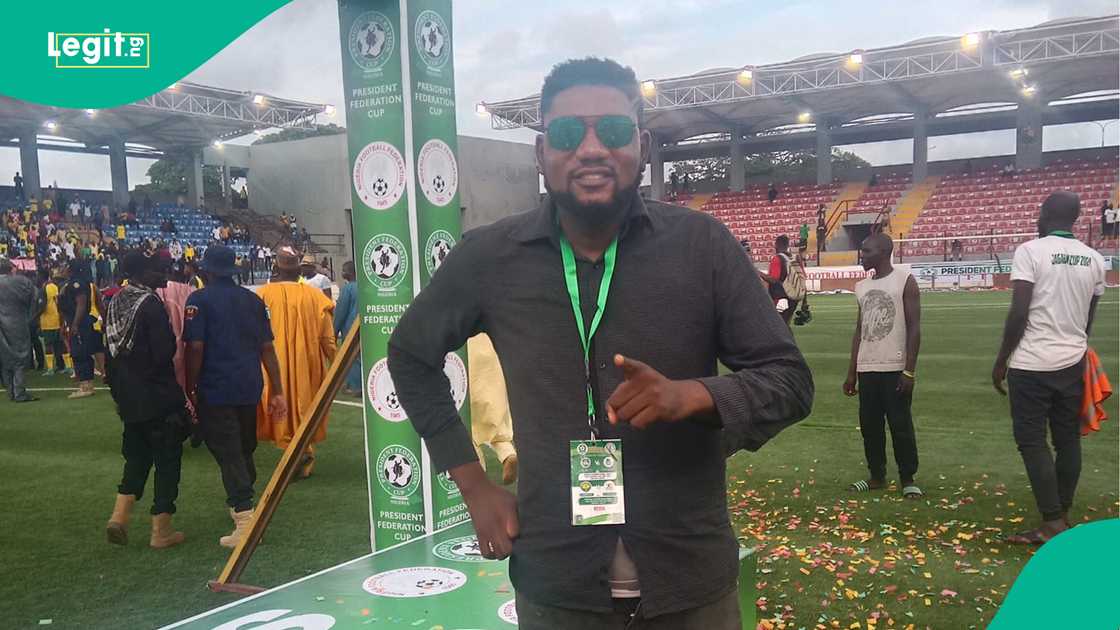
Source: Original
This calls for all progressive Nigerians to unite and assist the NPFL and the Nigeria Football Federation (NFF) in finding lasting solutions to acts of hooliganism in football.
Sports blogger Gabriel Alabi urged greater investment in security infrastructure to tackle and control the rising tide of hooliganism in the nation’s football. According to him, urgent investment in metal detectors and extensive closed-circuit television (CCTV) coverage that monitors the pitch and stands should be prioritised for security and safety purposes.
"How many league centres have metal detectors mounted at their gates to prevent people from bringing in dangerous tools and weapons?” he questioned, adding that a national hooligan database and travel restrictions for known troublemakers should be established.
He added:
"If the right things are done, our league will no doubt rise to become the best in Africa."
New campaigns
No one has a miracle recipe for totalling eradicating football-related violence, but clubs need to engage in continuous education of their fans before and after games. To effectively combat hooliganism, football stakeholders should adopt a multi-pronged approach.
For example, recently, Shooting Stars Football Club of Ibadan launched a fan education campaign at its stadium, where its social assistants worked to improve dialogue between the club and its supporters.
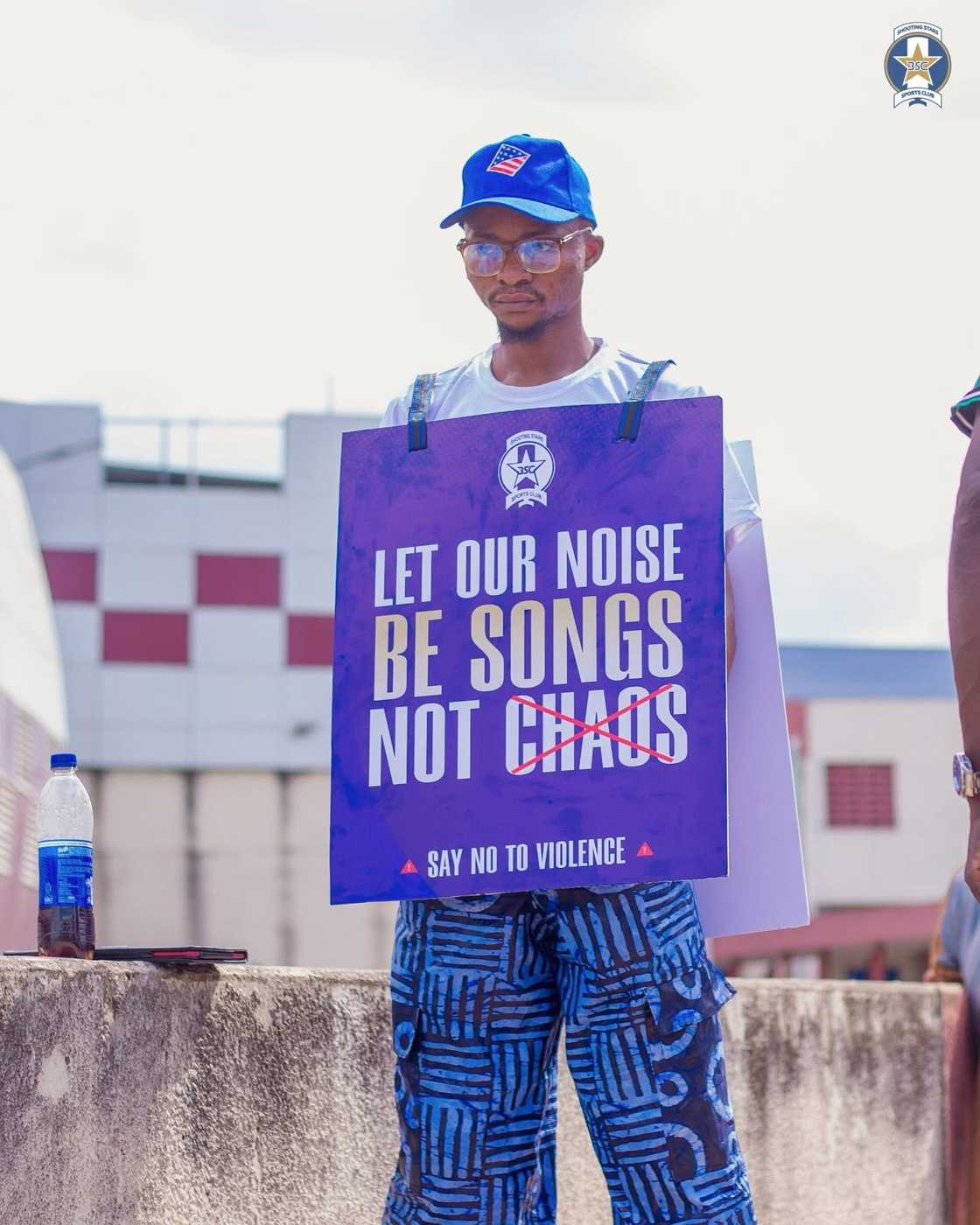
Source: Facebook
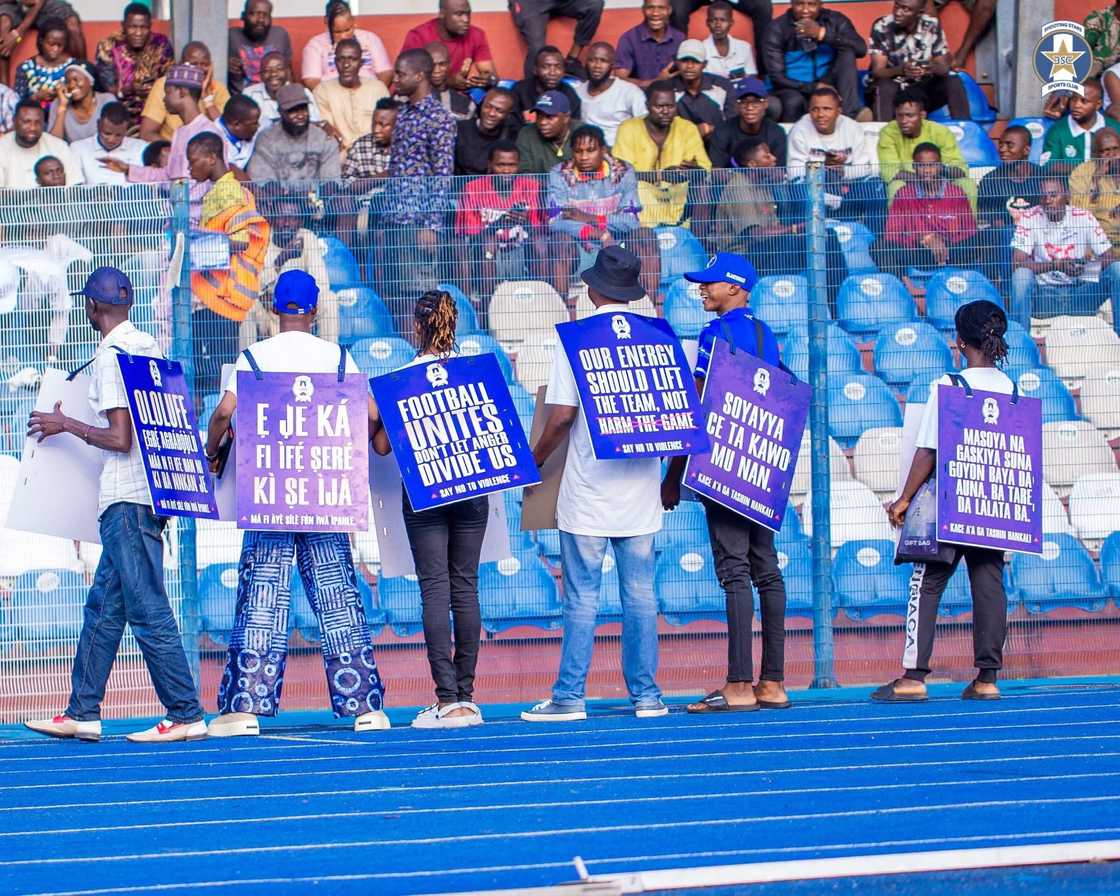
Source: Facebook
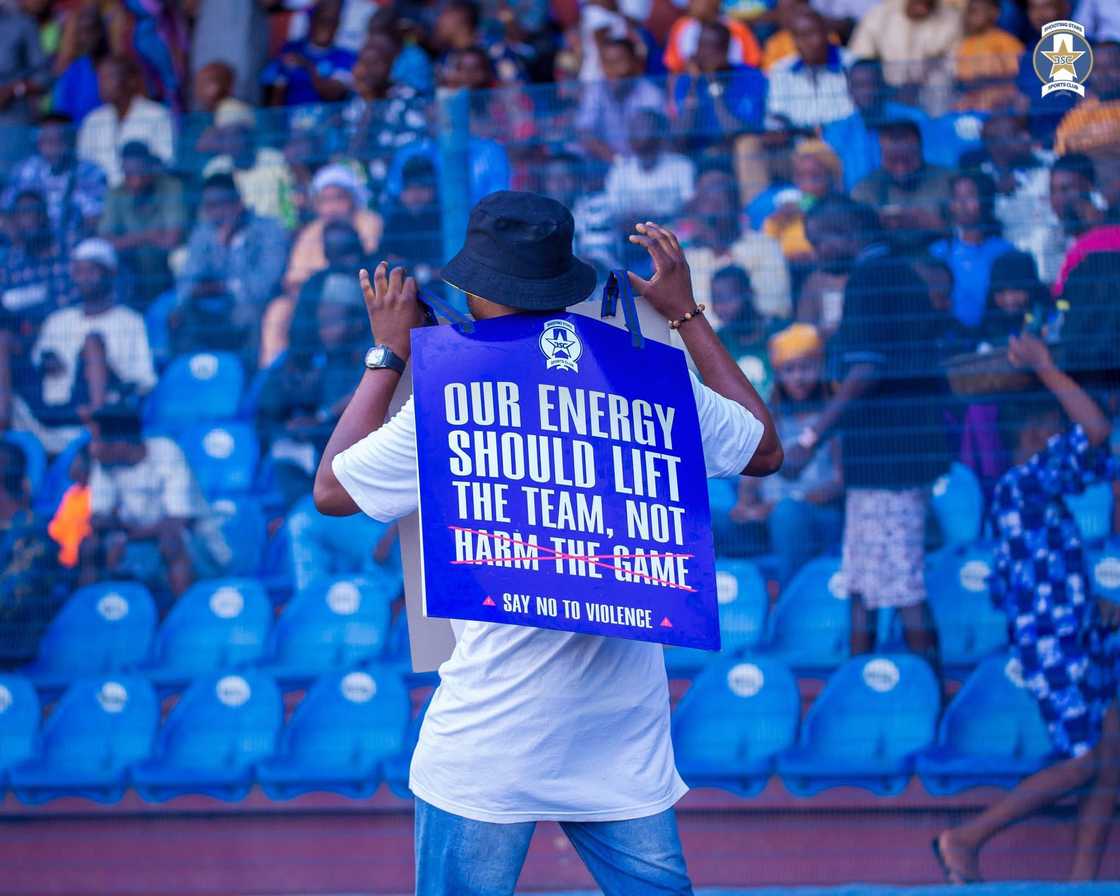
Source: Facebook
Adepoju Tobi, the club’s sporting director, and himself a victim of fan violence, said:
"We spotted some messages on social media, and it was important for us to educate our fans.
"What we are building are legacy innovations and a new life for our beloved club. Violence is not part of it, and we should not think of any reprisal against any team. All we need from our fans is their positive energy in the stands."
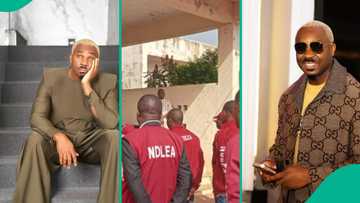
Read also
"Is he targeted?" NDLEA moves to seize Pretty Mike’s nightclub after alleged drug party raid
In the medium term, this initiative is expected to serve as an important preventive measure.
CAF on breaking cycle of violence
Speaking in April in Accra, Ghana, Patrice Motsepe, president of the Confederation of African Football (CAF), pledged to take firm action against the rise in violence and hooliganism at football matches across Africa.
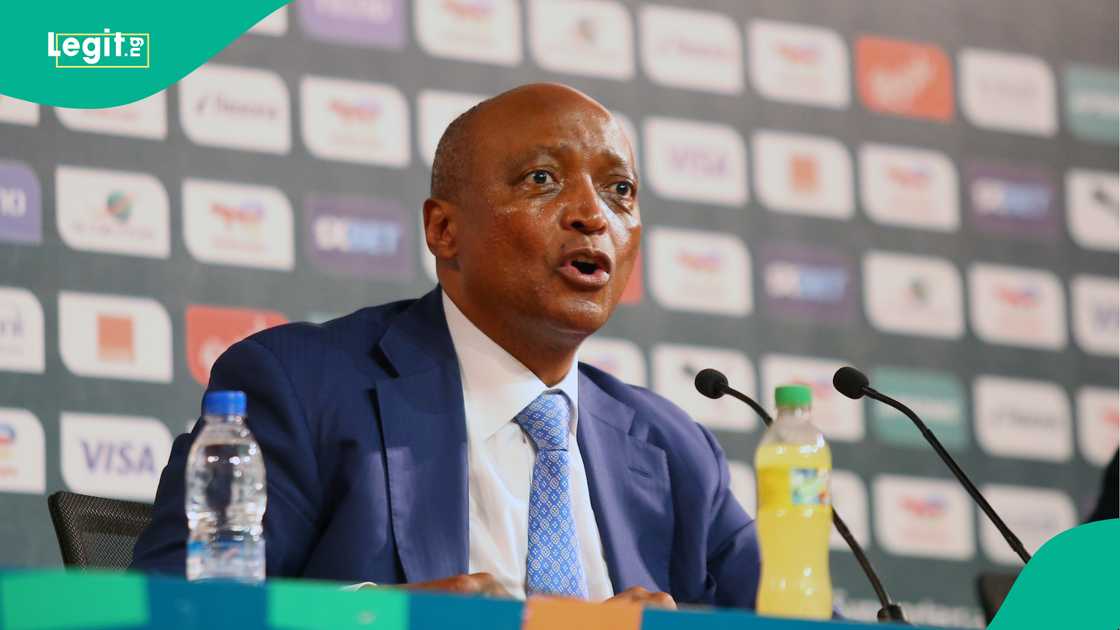
Source: Getty Images
Motsepe said CAF is deeply committed to making stadiums safe for all spectators.
"CAF is determined to ensure that stadiums are safe spaces where fans can feel secure,” Motsepe stated. “Even one injury is unacceptable, and the loss of a single life is something we must do everything to prevent."
He revealed that CAF is reviewing global best practices to strengthen stadium safety, with consultations ongoing with experts in Europe and other regions.
"We are studying where the safest spectator environments exist and how we can replicate that in Africa."
Motsepe assured that CAF will continue working with specialists to implement improved crowd management and security measures across the continent.
Adding to the discourse, Fabunmi, the football expert shared that club fans should be sensitised and schooled on the rudiments of football supportership in Nigeria.

Read also
Okocha embarrasses 2 Barcelona legends with filthy skill during novelty match in Abuja, video
"One of the things the football authorities in the country can do to sanitise Nigerian football especially hooliganism is to go on a sensitising mission," Fabunmi proffered. "Regular sensitisation and preaching will go along way to curb football violence in the country."
On his part, Alabi asserted that football violence is “unacceptable, unjustifiable, and goes against everything this beautiful sport stands for.”
"Supporters are a vital component of our football structure," he noted. "But we must remind them that it is wrong and unacceptable for them to take the law into their own hands because there is simply no place for violence in football."
Source: Legit.ng

